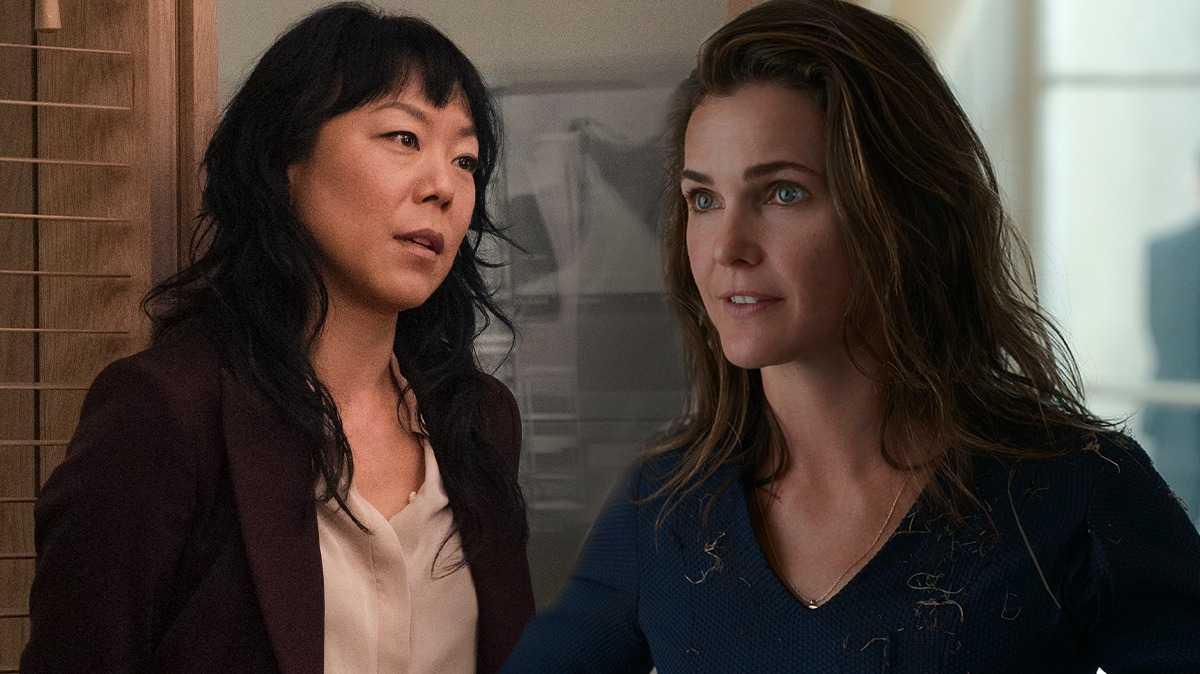In the realm of television storytelling, character development serves as the backbone of any compelling narrative, transforming mere figures on a screen into complex, relatable individuals whose journeys captivate audiences. “The Diplomat,” a series renowned for its intricate plotlines and multifaceted characters, reaches a pivotal moment in Episode 7, where the evolution of its protagonists takes center stage. This episode not only advances the overarching narrative but also delves deep into the psyches of its characters, revealing layers of complexity and growth that have been meticulously crafted over the season. Through an analytical lens, this article will explore the nuanced character development in Episode 7, examining how the writers have skillfully navigated the intricate dynamics of personal and political spheres to enrich the viewer’s understanding of each character’s motivations and transformations. By dissecting these elements, we aim to uncover the subtle yet powerful techniques employed to enhance the storytelling of “The Diplomat,” solidifying its place as a masterclass in character-driven drama.
Exploring the Depth of Emotional Transformation in Key Characters
In Episode 7 of “The Diplomat,” viewers witness a profound emotional transformation in several key characters, which serves as a catalyst for the unfolding narrative. The protagonist, Kate Wyler, navigates the turbulent waters of international diplomacy with a newfound sense of vulnerability. Her journey from a hardened diplomat to someone who allows personal emotions to surface is both compelling and relatable. This episode peels back layers of her character, revealing a complexity that was previously hinted at but never fully explored. As she grapples with the consequences of her decisions, we see a shift in her demeanor, marked by moments of introspection and self-doubt, which add depth to her character arc.
- Hal Wyler: The transformation in Hal is equally noteworthy. Initially portrayed as a supportive spouse, his character takes on a more assertive role, challenging the status quo and questioning his own place within the diplomatic landscape.
- Stuart Hayford: Stuart’s development is marked by a growing sense of moral ambiguity. His internal conflict between personal ambition and ethical responsibility becomes increasingly pronounced, highlighting the show’s exploration of complex human emotions.
- Billie Appiah: Billie emerges as a pivotal character, whose emotional resilience is tested. Her journey from skepticism to trust illustrates a significant transformation, emphasizing the importance of personal growth in the face of adversity.
These character evolutions are not merely for dramatic effect; they are integral to the plot, providing a richer understanding of the motivations and inner conflicts that drive the series forward.

Analyzing the Subtle Evolution of Interpersonal Dynamics
Episode 7 of “The Diplomat” offers a masterclass in character development, particularly through the nuanced shifts in interpersonal dynamics. Subtle cues in dialogue and body language reveal evolving relationships, adding depth to the narrative. The episode focuses on the protagonist’s interactions with key figures, showcasing a delicate balance between personal ambition and professional duty.
- Trust and Betrayal: The protagonist’s growing mistrust of a close ally is artfully depicted through tense conversations and lingering glances, illustrating a shift from camaraderie to suspicion.
- Power Dynamics: A once-dominant character finds their influence waning, marked by increasingly defensive postures and clipped responses, reflecting a changing hierarchy.
- Emotional Vulnerability: Moments of unexpected tenderness reveal hidden layers of vulnerability, offering a glimpse into the emotional cost of diplomatic life.
These intricate developments not only enrich the characters but also elevate the storyline, making Episode 7 a pivotal point in the series. By observing these transformations, viewers gain a deeper understanding of the complex web of relationships that define “The Diplomat.”

Unveiling the Impact of Pivotal Moments on Character Growth
Episode 7 of “The Diplomat” masterfully showcases the profound impact of pivotal moments on character growth, providing a rich tapestry of development that resonates with viewers. In this episode, we witness Ambassador Jane Smith grappling with a high-stakes negotiation that forces her to confront her past decisions and moral compass. This moment of reckoning is not just a plot device but a catalyst for profound personal evolution. Her internal struggle is portrayed with such nuance that it becomes a mirror reflecting the complexities of leadership and the burdens it carries. The episode delves into the intricate layers of her character, revealing vulnerabilities and strengths that had been simmering beneath the surface. The audience is left to ponder how these revelations will influence her future actions and decisions, making her journey not just a narrative arc but a study in human resilience and adaptability.
- Confrontation with the Past: Jane’s encounter with a former ally brings unresolved tensions to the forefront, challenging her to reconcile her professional duties with personal ethics.
- Emotional Vulnerability: The episode peels back the layers of Jane’s stoic exterior, offering glimpses into her fears and aspirations, thus humanizing her in the eyes of the audience.
- Decision-Making Under Pressure: As the stakes escalate, Jane’s choices become a testament to her growth, illustrating how pivotal moments can redefine one’s path and priorities.
Through these transformative experiences, “The Diplomat” Episode 7 not only advances the plot but also enriches the character tapestry, inviting viewers to engage with the narrative on a deeper, more introspective level.
Recommendations for Enhancing Future Character Arcs
- Deepen Emotional Complexity: To elevate future character arcs, it’s essential to delve into the emotional intricacies of the characters. Exploring their vulnerabilities and internal conflicts can add layers to their personalities, making them more relatable and compelling. By doing so, viewers can witness a more profound transformation, fostering a stronger connection with the character’s journey.
- Integrate Subtle Foreshadowing: Subtle hints and foreshadowing can be powerful tools in character development. Introducing nuanced clues about a character’s future decisions or transformations can create anticipation and intrigue. This technique not only enriches the narrative but also rewards attentive viewers with a deeper understanding of the character’s evolution.
- Consistent Growth and Setbacks: A realistic character arc should include both progress and setbacks. Characters should face challenges that test their resolve and push them to evolve. This balance ensures that growth feels earned and authentic, rather than forced or predictable.


